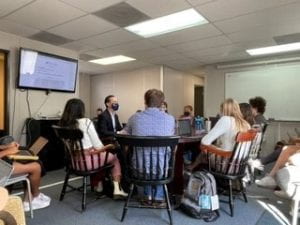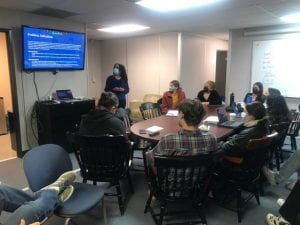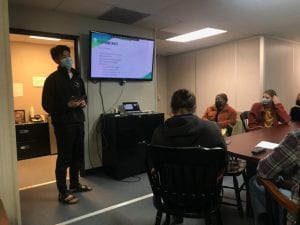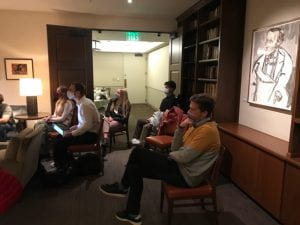
A Message from Policy Lab Directors, Professor Zachary Courser and Professor Eric Helland
Dear Policy Lab alumni, friends, and supporters:
Welcome to the Policy Lab’s inaugural newsletter! We are excited to announce the launch of our new, semiannual e-newsletter, which will bring you updates on our work in the Lab and cover a wide range of topics including research highlights, alumni profiles, and more.
This month’s newsletter features an update on the Policy Lab class project with Senior Fellow Kevin Kosar from the American Enterprise Institute (AEI) on voter turnout; reflections on life as a Lab Manager from CMC alum Harrison Hosking; three interviews with recent Policy Lab alumni; a profile of our newest hire, Assistant Director Liz Biskar; a trip report on Liz’s recent visit to Washington D.C. for the Transportation Research Board Annual Meeting; and finally a discussion of ways to support our work.
The last months of the pandemic have been a challenge for students, faculty, and staff across the Claremont Colleges. We’re very proud of how our students rose to the challenge, working and attending our class remotely, and continuing to contribute excellently to our policy research projects. It was a relief and a delight to see everyone again in person at the Policy Lab office this fall, and to welcome so many new students to the class. The Policy Lab course, an experiential learning capstone for students majoring in Public Policy, had its highest-ever class enrollment of 18 students in the fall. The new Public Policy major at CMC also continues to grow, with 46 declared student majors as of January 2022.
Our program of policy research and teaching continues to grow and expand. We’re pleased to say our Fall 2021 class successfully took on some of the most challenging data collection and analysis we’ve done in the class. Students not only accomplished a great deal in terms of advancing our voter access project with AEI, but they also chose a wide variety of interesting and topical policy problems to study as part of their final policy projects. This semester we’re continuing our work on vote access, and are excited to welcome our Spring 2022 Policy Lab students and two new Lab Managers, Anika Kimme and Augusta Lewis. You can read more about them below.
We would also like to take this opportunity to thank our funding partner, the Hewlett Foundation, for its continuing support of our program of student-centered policy research and experiential learning this year. We rely on the support of our funders to provide Policy Lab students with the hands-on research experience that will help them succeed after graduation.
If you would like to learn more about the Policy Lab and how you can support our work, or have an idea for a future newsletter article or topic, please feel free to reach out to Liz Biskar at: lbiskar@cmc.edu. We would love to hear from you!
Thank you for your support and we hope you have a great start to 2022!
Zach Courser and Eric Helland, Co-Directors, Policy Lab
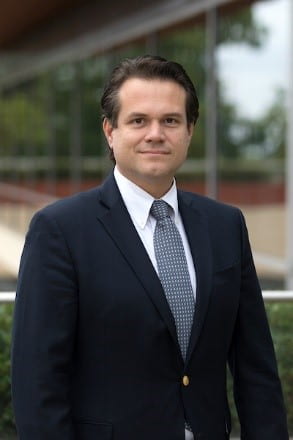
Professor Zachary Courser and Professor Eric Helland
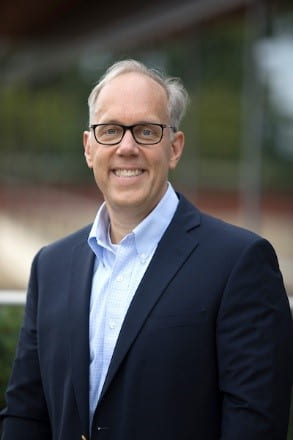
About the Policy Lab
The Policy Lab gives students a firm foundation in how public policy is made in the United States, to prepare them for work in legislatures, think tanks, non-governmental organizations, or to pursue graduate education. Our program combines political science, economics, and practical application through a diverse array of research projects. Working closely with our faculty, staff and external partners, Policy Lab students learn and apply essential skills for policy writing, analysis and creation, and contribute to professional policy research. To learn more about our recent projects, visit our website here: https://policylab.cmc.edu/
Policy Lab Fall 2021 Highlights
Students in the Fall 2021 Policy Lab class continued to work on the Voter Access and Turnout Project, in partnership with Kevin Kosar at the American Enterprise Institute (AEI), to understand the extent to which emergency measures enacted by states in the run-up to the 2020 US Presidential election impacted voter turnout. Using population data from the US Census and voter turnout data from county election offices, the students constructed a county-level turnout statistic based on voting age population. This highly-accurate dataset, which had yet to be produced for the 2020 election, has enabled us to better understand how increasing access to voting had a positive effect on turnout.
This work is a continuation of previous Policy Lab research into voter access, all of which helped to lay the groundwork for the data collection conducted in the fall. Previous Policy Lab classes had helped to catalog state-level election measures during the pandemic, and created a vote access scorecard, which ranked actions taken by states (e.g., ballot boxes, no excuse mail in ballots, etc.) in response to the pandemic.
Our client for this semester, Kevin Kosar, visited the Lab on December 6th to review the students’ work, give feedback, and discuss how their findings affect the current debate in Washington regarding voting access laws. Meeting with clients in-person is critical to our research process in the Policy Lab because it mirrors the policy research process outside of the classroom.
In addition to the hands-on policy work conducted for our client at AEI, students were each asked to choose an individual policy problem to research for their final projects in the Lab. Students selected a wide variety of domestic policy areas to study – from the FDA approval process for vaccinations, to the need for federal guidelines on e-waste management to expanding childcare subsidies. Students were asked to incorporate data visualizations and present their key findings in PowerPoint slides. Students delivered presentations to their Policy Lab peers, and Co-Directors Professor Courser and Professor Helland, over a two-day period in the Lab and in the Athenaeum.
News Round-Up
Announcing our Spring 2022 Lab Managers

Congratulations to Anika Kimme and Augusta Lewis on being selected as the Lab Managers for the Spring 2022 Policy Lab! Anika (CMC ‘23) and Augusta (CMC ‘22) completed the Policy Lab capstone in Fall 2021 and were both instrumental to the success of the ongoing Voter Turnout and Access Project in partnership with AEI.
Anika is a Public Policy major specializing in Data Science at CMC and an athlete on the CMC Track Team. Augusta is a dual Public Policy and International Relations major at CMC and an athlete on the CMC Swim Team. Prior to completing the Policy Lab capstone, Augusta worked in the Policy Lab as a Summer Research Associate on the Voter Access and Turnout project. Both Anika and Augusta have previously worked with Professor Shanna Rose on federal and state minimum wage policy.
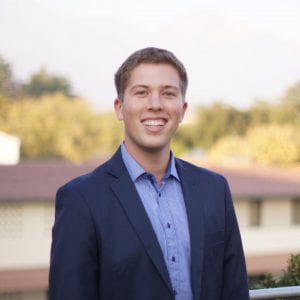
In Their Own Words: Reflection from Policy Lab Fall 2021 Student Lab Manager, Harrison Hosking (CMC ’22)
Harrison Hosking completed the Policy Lab capstone in Spring 2021 and was later appointed to the position of Lab Manager for the Fall 2021 class. Lab Managers are typically selected from the previous semester’s student pool and are chosen based on performance and engagement with the subject matter. Harrison graduated from CMC in December 2021 and reflects below on his experience in the Lab as both student and Lab Manager.
What did you learn during your time as a Lab Manager?
My experience as a Policy Lab Manager has been very rewarding, having had the opportunity to be in the role for both the Summer and the Fall of 2021. I learned an immense amount about the difficulties of compiling accurate and robust voter turnout figures, and the intricacies behind the return of earmarks in Congress, across the work on two different projects. My favorite part of the Lab Manager role was getting to attend the class in-person, having taken the Policy Lab course during the online ‘COVID semester,’ and getting to participate in the robust discussion that occurred during the weekly staff meetings. Getting to watch eighteen dedicated students tackle complex policy problems on the weekly was inspiring, and I am glad to have played a positive role in contributing towards this and aiding the final project as a result.
What advice do you have for future Policy Lab Managers?
My advice to future Lab Managers would be to really get stuck in and view it as a learning process yourself. I certainly learned a lot this semester, especially when it came to interesting niche topics such as voting in Alaska and the voting rights of felons. I would like to thank both Professor Helland and Professor Courser for the opportunity to work as a Lab Manager, as both have been amazing resources and people I can always turn to for advice. I will miss seeing them on a regular basis.
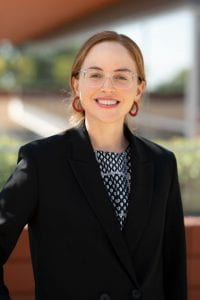
Meet our new Assistant Director to the Policy Lab, Liz Biskar
We are very excited to introduce Liz Biskar, our new Assistant Director to the Policy Lab, who began working with us in August 2021. With the support of a generous grant from the Hewlett Foundation, we were able to create this new, full-time staff position to help grow the research output and fundraising activities for the Policy Lab.
Liz joined us from the Office of the Secretary of Transportation at the Massachusetts Department of Transportation (MassDOT), where she oversaw the Department’s pandemic-response Shared Streets and Spaces Grant Program. At MassDOT, Liz also undertook research to help develop a new state-wide Speed Management policy in response to the growing number of fatalities and serious injuries that have occurred on roadways across the nation over the past year. Prior to working at MassDOT, Liz spent nearly a decade working as a fundraiser and project manager in the non-profit sector on issues such as education, human rights, and housing justice. Liz holds a Master of Public Policy with a certificate in Urban Studies from Northeastern University and a Bachelor’s in Political Science from the University of Washington. Her research interests include transportation and housing policy. Liz grew up in Santa Monica and in her spare time enjoys reading, taking public transit, going to concerts, and playing backgammon.
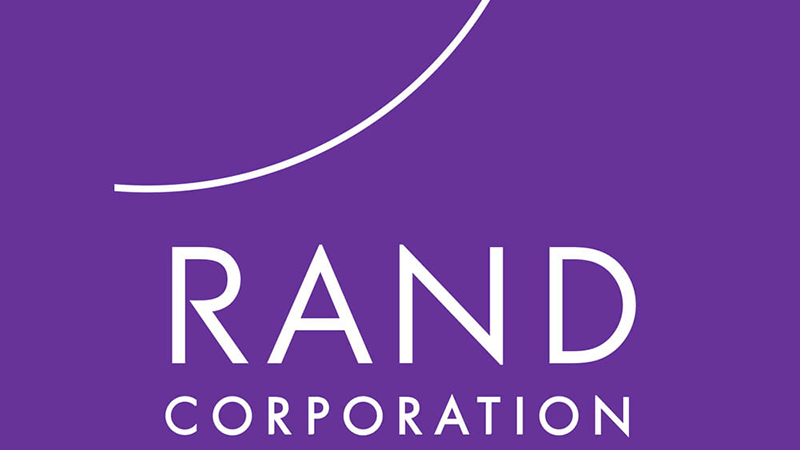
New research project on Multidistrict Litigation with the RAND Corporation
Co-Director of the Policy Lab, Professor Eric Helland, is working on a new study to examine the outcome of remanded cases when returned to their original court. One question this research seeks to answer is: are cases handled by lead councils in multi-district litigation more or less likely to be remanded? Using data from remanded case dockets, this research will examine what actions take place after cases are remanded. This research is being done in partnership with the RAND Corporation and will be supported by three student Research Assistants: Tessa Guerra, Livia Hughston, and Adarsh Srinivasan.

New partnership with the State Smart Transportation Initiative (SSTI)
We are very happy to announce a new research partnership with Managing Director, Chris McCahill, at the State Smart Transportation Initiative (SSTI) based at the University of Wisconsin-Madison. SSTI provides research, technical assistance, and information-sharing services for transportation officials and the communities they serve. Spring 2022 Lab Managers Anika Kimme and Augusta Lewis will be supporting Liz Biskar with this new research project which seeks to understand how state DOTs address or measure equity, with specific attention given to equity criteria within state project prioritization programs. This research question will build on previous research undertaken by SSTI on project prioritization programs, and will use public input received in response to the USDOT’s recent Request for Information (RFI) on transportation equity as its primary data source.
Policy Lab Alumni Profiles
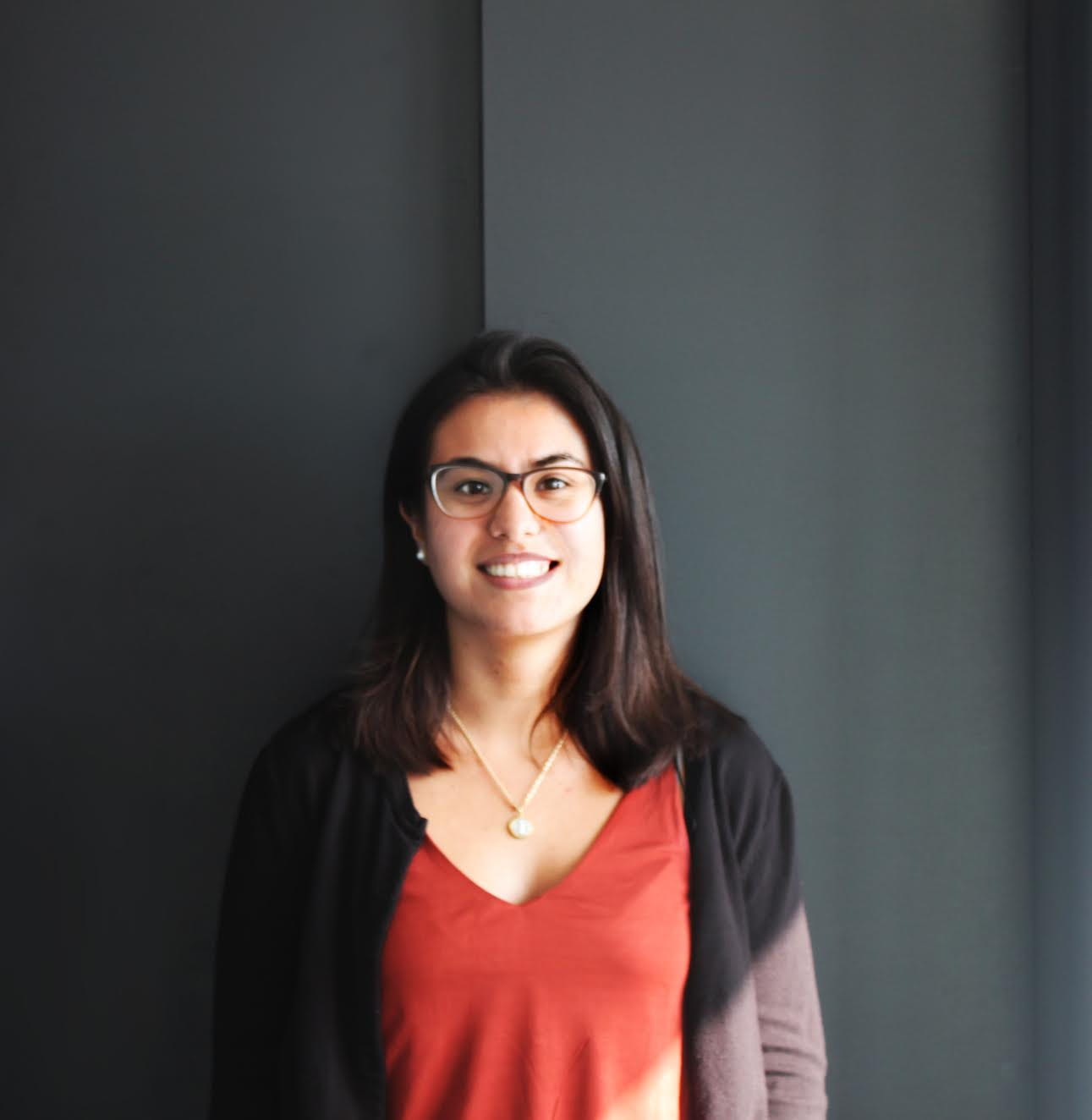
Vanessa Romo (CMC ’19)
Vanessa took the Policy Lab capstone in 2018 and graduated from CMC in 2019. During her time with us she worked with the Bipartisan Policy Center on projects related to physician licensing for interstate telehealth, and an analysis of proposed work requirements for Medicaid. Vanessa also served as a Lab Manager during our project with the Brookings Institution on how cities manage settlement of refugees and migrants, and how this could be addressed in the United Nation’s Global Compact for Migration.
What you have been up to since graduating from the Policy Lab?
I am currently pursuing my Master’s in Education Policy and Analysis at the Harvard Graduate School of Education (HGSE). On campus, I am also a Research Assistant at the Education Redesign Lab, an action-research hub that seeks to build cross-sector, community-wide systems of personalized support and opportunities for all children. Prior to graduate school, I served as the Alumni Coordinator at LA’s BEST Afterschool Enrichment Program through AmeriCorps VISTA, serving predominantly low-income students and students of color in Los Angeles, CA. In this role, I coordinated events and opportunities for alumni, documented program impact through alumni stories, and supported our local and state advocacy efforts.
How did your experience in the Policy Lab help you in your current position?
Policy Lab was my first hands-on experience with policy. Through our consulting projects with clients, I gained policy research and writing skills that prepared me to take on internships and other policy-focused work. As a graduate student now, I have been able to build on the skills that I gained Policy Lab, particularly through my policy practicum where I have been working with a client at the Massachusetts Department of Secondary and Elementary Education to conduct research, provide policy recommendations, and synthesize findings into succinct deliverables. Overall, my experience in Policy Lab helped me establish a strong foundation in policy, research, and consulting that has served me well in my graduate program.
Is there anything else you would like to share with friends of the Policy Lab about your experience?
Policy Lab continues to come up in conversations when I talk about my background and start in policy, and even now peers and colleagues are impressed with the work we were able to engage in at the undergraduate level. It truly was a unique and wonderful experience!
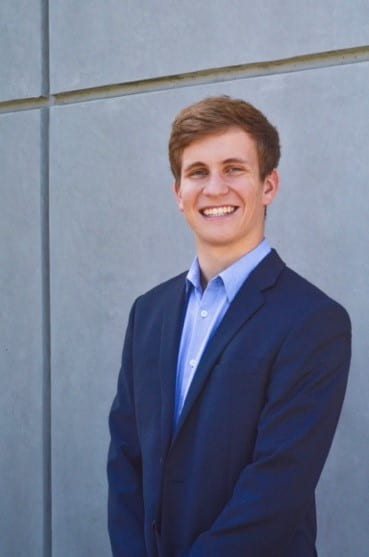
Kyle Fendorf (CMC ’21)
Kyle Fendorf is a Policy Lab alumnus who graduated from CMC in Spring 2021 with a Dual Major in Philosophy, Politics, Economics (PPE) and Public Policy. After graduating, Kyle started working as a Research Associate at the Council on Foreign Relations (CFR) in their Digital and Cyberspace Program. In this role, Kyle has been undertaking research for Fellows associated with the program and also managing some of the public-facing aspects of the Digital Cyberspace Program such as its blog, other publications, and a seminar series.
On his experience in the Policy Lab, Kyle writes:
“Policy Lab provided me with invaluable experience for my current role at CFR. In Policy Lab, I learned how to work with a research team to create deliverables for peers quickly, and also to operate independently. I think the most valuable thing about Policy Lab for me was in its similarities to my current role. While other classes were certainly useful and taught me a great deal, Policy Lab was unique in how closely it reflects the research process at a think tank. Coordinating with other research associates at CFR has been a big part of my job, and the collaborative nature of Policy Lab was some of the best preparation I could get for that type of work. Exposure to real research was a great aspect of Policy Lab as well because it encouraged me to think in an original way and to seek solutions to problems that thus far don’t have a defined solution. Overall, Policy Lab provided me with an invaluable experience that has really helped me land on my feet at CFR.”

Zane Tolchinsky (CMC ’20)
Zane completed the Policy Lab course in Fall 2019 and was later appointed to the position of Lab Manager during the Fall 2020 semester. While in the Policy Lab, Zane worked on a Congressional Earmarks Research Project with Policy Lab partner, R Street, as well as a Payday Lending Services and State-Level Financial Regulation Project with Policy Lab partner, Citizens for Responsibility and Ethics in Washington (CREW).
What have you been up to since graduating from CMC?
After graduating I was hired as a Summer Research Fellow in the Policy Lab. This was a special program that Professor Courser and Professor Helland organized for seniors graduating at the start of the Covid-19 pandemic. I worked on a team examining payday lending services with CREW. At the end of the summer, I took a position at a technology startup that was started by a CMC alum. In this position, I managed clients, helped clients use the software, and worked with the product team.
I stayed there for another six months, and then decided I wanted to move to Washington D.C. and work on Capitol Hill. I was fortunate to get a summer internship in July 2021 in the Office of Senator Feinstein and was later offered a full-time staff position in her office in September 2021, which is what I’m doing now.
Tell me about what a typical day looks like in your current job in Senator Feinstein’s office.
I am a Staff Assistant in Senator Feinstein’s office. A typical day includes things like answering the phone, forwarding mail and other constituent correspondence, and working with the legislative team. I am also a member of the environment, agriculture and interior team, and get to do things like conduct research, write policy memos, and draft letters. So, between these two main job responsibilities I get to work on a wide range of projects and tasks.
Since you started working in Senator Feinstein’s office, is there a particular project that you got to work on that stands out to you?
I did an independent research project while I was an intern on a specific payday loan regulation, and that was sort of inspired by my experience in the Policy Lab working with CREW. It really sparked that interest and I’m thinking I might want to continue working on consumer protection policy in the future as my policy area of focus.
Are there things you learned in the Policy Lab capstone or summer fellowship that helped you become successful in your role?
Definitely. Being familiar with memo-writing and white papers and policy writing in general was integral to getting hired and my success in these positions so far. It definitely gave me an advantage to come into that role and have a confidence in policy writing that not a lot of people have at our age and at this level of experience. Having a familiarity with thinking about policy and coming up with policy solutions – from things like defining the problem, quantifying the problem, and being confident and comfortable with that thought process, really shaped how I was able to be successful and set myself apart in the role and looking for jobs.
You graduated right at the beginning of the pandemic and changed jobs a few times before deciding to move to Washington D.C. Do you have any advice for students interested in working in public policy but are unsure about what they want to do specifically?
Generally, I think there’s no such thing as a bad experience, regardless of whether it ends up being something on your career path. I think you can take away valuable experience from anything you do. My advice to students is don’t be scared about trying something that might not necessarily be what you had in mind. When it comes to policy, I think especially in D.C., that persistence and not being discouraged is an underrated skillset. Becoming comfortable with facing rejection on your way to whatever position you want, that is a valuable skill and something that should be emphasized: that you shouldn’t take those things too personally.
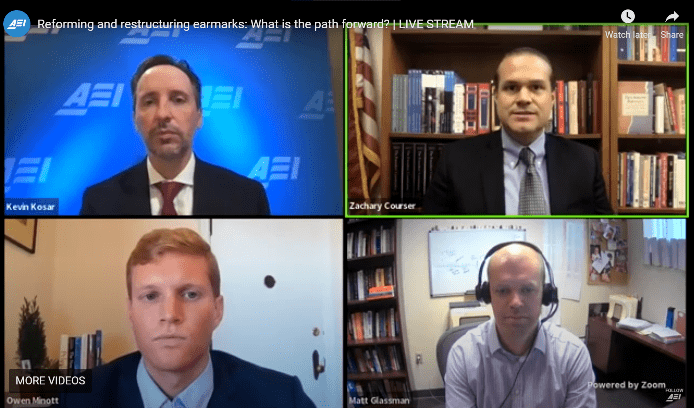
Policy Lab Co-Director, Professor Zach Courser, Presents Research on Congressional Earmarking Live on C-SPAN with the American Enterprise Institute (AEI) and Bipartisan Policy Center (BPC)
This past year, Congress reinstated earmark spending in both the House and Senate after a decade-long moratorium. The Policy Lab has been working with DC-based think tank partners since 2019 on the earmarking moratorium’s effect on the legislative activities of Congress, and issued a report with the American Enterprise Institute (AEI) a year ago recommending they be reinstituted with reforms. In the Spring of 2021 parties in both Houses of Congress amended their rules to allow for a modified form of earmarking for fiscal year 2022.
To understand the early impact of reinstituting earmarks, the Policy Lab partnered with the Bipartisan Policy Center (BPC) and AEI to organize a conference in December 2021 entitled “Reforming and restructuring earmarks: What is the path forward?” Co-Director Zach Courser presented an analysis of earmark requests and approvals, and moderated a panel on improving the earmarking process for next year. The data collection for the earmarking analysis was assisted by Assistant Director Liz Biskar, Lab Manager Harrison Hoskin (CMC ’21), and research assistant Sarah Simionas (CMC ’23).
The major findings of the Policy Lab analysis were that while the rollout of earmarks was largely a success, there were divergent outcomes in the House and Senate. In the House, broad participation by both parties helped make the process equitable. Committee rules helped keep spending in check, and the reforms to prevent abuse seemed promising. The transparency of the process was good, but it could use improvement in the future in publicizing funding decisions. In the Senate, the fact the GOP did not change their conference rules to allow their members to participate undermined broad participation. While spending was kept in check, there were various equity concerns, with Senate appropriators overrepresented and uneven participation. Overall, both chambers needed to work on better coordination of rules and process.
The conference was aired live on C-SPAN, and the recording can be viewed here.
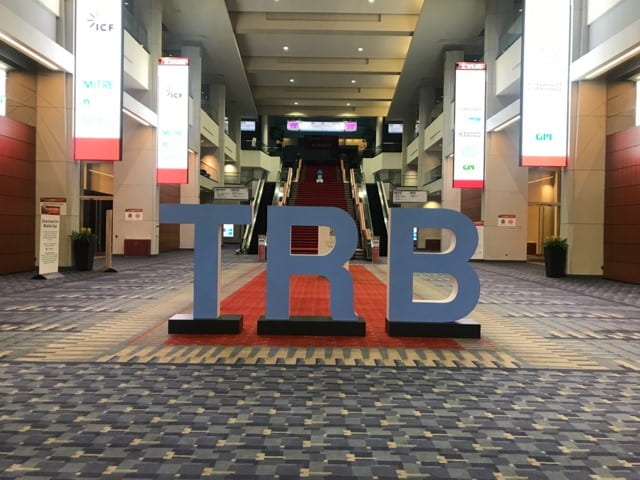
Trip Report: Assistant Director, Liz Biskar, Visits Washington D.C. for the Transportation Research Board (TRB) Annual Meeting
I was so pleased to be able to attend my first Annual Meeting for the Transportation Research Board (TRB) at the Walter E. Washington Convention Center in Washington D.C. The five-day conference was attended by thousands of transportation policy practitioners and researchers and featured a fantastic keynote address from the United States Secretary of Transportation Pete Buttigieg. For me personally, the Annual Meeting was an extremely valuable opportunity to learn about emerging areas of transportation research, hear from USDOT officials about the Biden/Harris administration’s transportation policy priorities, connect with old colleagues, and meet new people working in my field.
One of the standout workshop sessions I attended was the “State DOT CEO Roundtable: State DOTs Creating Pathways to Equity.” The session was chaired by the Louisiana Secretary of Transportation, Dr. Shawn Wilson, who was also recently appointed President of the American Association of State Highway and Transportation Officials (AASHTO), the first African American person to assume this role. The roundtable featured state transportation secretaries from PennDOT and CalTrans, and both spoke about the importance of engaging community-based organizations to help grow public engagement, as well as many internal initiatives taking place to help recruit and retain people of color within state DOTs. At CalTrans, for example, they have recently launched a new implicit bias training program for all staff, as well as intentionally hiring formerly incarcerated people and former homeless people to help deliver some of Governor Newsom’s new clean energy programs.
Another great presentation was called “Executive Leaders at Public Transportation Agencies”, which was chaired by Deputy Administrator of the Federal Highway Administration (FHWA), Stephanie Pollack. One point she mentioned that stuck with me was the importance of agile decision-making as opposed to waterfall (or linear) decision-making within large, federal organizations such as the FHWA. Doing so ensures decision-makers are involved from the beginning of the process, rather than waiting until the end of the process when it may be too late to make changes without upending the whole program. She also mentioned that state DOTs and other transportation agencies act as dockets for new ideas that can help inform the USDOT, especially in technical fields such as Electric Vehicle charging.
Overall, it was a great experience, and I am excited to be able to apply some of these takeaways on transportation equity and state DOT priorities to our new research project with SSTI.
Support the Policy Lab
Interested in supporting the next generation of public policy leaders?
The Policy Lab is donor-funded, and relies on support from trusts and foundations, individuals, alumni, corporate sponsors, and others to keep our work going. Our unique funding model allows us to put students at the center of all policy research, and ensure they receive the hands-on, evidence-based policy research and memo-writing experience that will help them succeed after graduation. It also gives us the flexibility to pursue research partnerships with well-respected think tanks and policy professionals that will enhance the students’ experience, without the expectation that research partners will make a financial contribution for our efforts.
Please consider making a donation to Policy Lab today! Online donations can be made here. Please select “Other” in the Designation field and enter “Policy Lab” in the comments.
Thank you!

